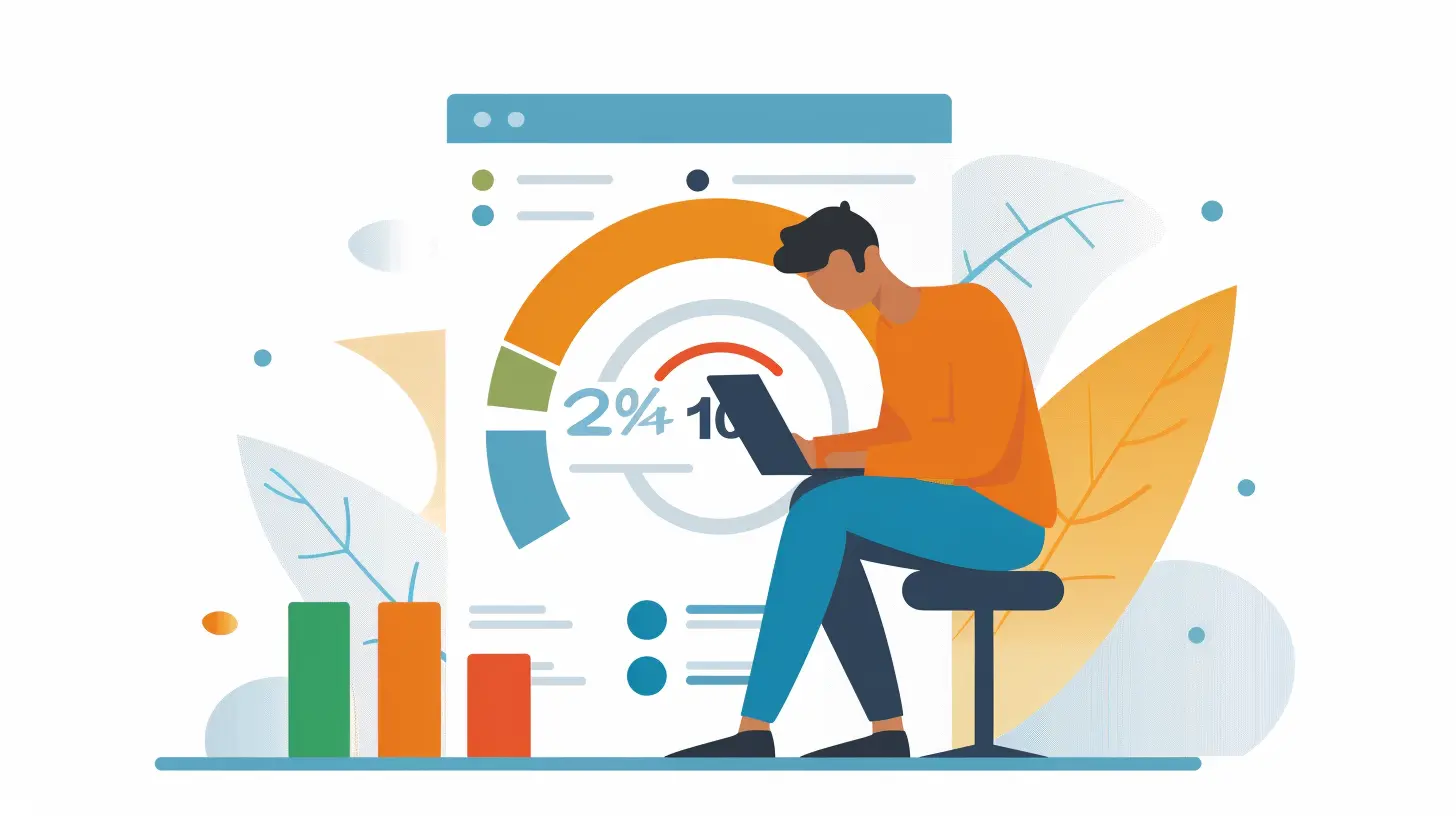Credit Score Myths You Should Stop Believing
12 May 2025
Your credit score is like your financial report card. It determines whether you get approved for loans, the interest rates you pay, and even whether you land that dream apartment. But here's the problem—there's a lot of misinformation floating around about credit scores.
Some myths have been passed down like family heirlooms, while others have spread thanks to outdated advice. Believing these myths can end up hurting your financial health. So, let’s debunk some of the biggest credit score myths once and for all.

Myth #1: Checking Your Credit Score Hurts Your Score
Many people refuse to check their credit score because they think it will lower their number. Let’s clear this up—checking your own credit score does NOT hurt your credit.There are two types of credit inquiries:
- Soft Inquiries: This happens when you check your credit score or when a company does a background check. Soft inquiries do not impact your score.
- Hard Inquiries: These occur when you apply for a new credit card, loan, or mortgage. Multiple hard inquiries in a short period can lower your score temporarily.
So, go ahead and check your credit report regularly. It’s the best way to spot errors or signs of fraud before they cause damage.

Myth #2: You Need to Carry a Balance to Build Credit
Some people believe that carrying a balance on their credit card helps boost their score. The truth? Carrying a balance only helps your credit card company—not you.Credit utilization, which refers to the percentage of your credit limit you're using, plays a significant role in your score. Maxing out your card or keeping a high balance increases your utilization ratio, which can hurt your score.
Instead of carrying a balance, practice this:
✅ Pay off your credit card in full each month
✅ Keep your credit utilization below 30% (preferably under 10%)
✅ Make on-time payments
Not only will this improve your credit score, but it also saves you money on interest charges.

Myth #3: Closing Old Credit Cards Improves Your Score
Thinking about shutting down that old credit card you never use? Hold on! Closing a credit card can actually drop your credit score.Here’s why:
- Credit history length matters. Older accounts help establish a longer credit history, which is good for your score.
- Closing a card reduces your available credit. This increases your credit utilization ratio, which could lower your score.
If your old credit card has no annual fee, consider keeping it open. You can use it occasionally and pay it off to keep it active.

Myth #4: A Higher Income Equals a Higher Credit Score
Earning six figures doesn’t automatically mean you’ll have an excellent credit score. Your income is not factored into your credit score at all.Credit scores are based on:
✔ Payment history
✔ Credit utilization
✔ Credit history length
✔ Credit mix (types of accounts)
✔ New credit inquiries
Even if you make a lot of money, late payments or maxed-out credit cards will drag down your score. The key to a great credit score? Smart financial habits, not your paycheck size.
Myth #5: You Only Have One Credit Score
Wouldn’t it be simple if there was just one universal credit score? Unfortunately, that's not the case.There are multiple scoring models, with FICO Score and VantageScore being the two main ones. Additionally, different lenders use different versions of these scores. Your credit score can vary depending on:
🔹 The credit bureau providing the score (Equifax, Experian, or TransUnion)
🔹 The scoring model used
🔹 The type of loan or credit product being applied for
So, if you see different scores from different sources, don’t panic—it’s completely normal!
Myth #6: Your Credit Score Won’t Matter If You Don’t Plan to Take Out Loans
Even if you don’t plan to buy a house or take out a loan anytime soon, your credit score still matters. Why? Because credit scores are used for more than just loans.Your credit score can impact:
🏠 Rental applications (landlords check credit reports)
📱 Cell phone plans (some providers require a credit check)
🚗 Car insurance rates (in some states, insurers use credit-based scores)
💼 Job applications (some employers review credit history)
A bad credit score can limit your options and cost you more money over time. Even if you’re debt-free, maintaining a good credit score gives you financial flexibility.
Myth #7: Debit Cards Help Build Your Credit Score
Swiping your debit card responsibly is great for budgeting, but it does nothing for your credit score.Why? Because debit card transactions are not reported to the credit bureaus. Unlike credit cards, debit cards don’t involve borrowing money, so they can’t establish a credit history.
If you want to build or improve your credit score, consider:
💳 Using a credit card responsibly
🏦 Taking out a credit-builder loan
📝 Becoming an authorized user on a family member’s credit card
Myth #8: Paying Off Debt Removes It from Your Credit Report Immediately
It would be nice if debts disappeared from your credit report the moment you paid them off, but that’s not how it works. Paid-off debts stay on your credit report for a certain period depending on their type:- Positive accounts (like a loan paid on time) can remain for up to 10 years.
- Negative accounts (missed payments, collections, bankruptcies) can stay for 7 to 10 years.
The good news? As time passes, negative marks have less impact on your score, especially if you build a positive credit history.
Myth #9: Credit Repair Companies Can Instantly Fix Your Credit Score
If a credit repair company promises to instantly boost your score or erase negative marks, be cautious—it might be a scam.While some legitimate companies help dispute errors on your credit report, they can’t remove accurate negative information. The best way to repair your credit? Time and responsible financial habits.
🚀 Tips for improving your credit score:
✔ Pay bills on time
✔ Keep credit utilization low
✔ Avoid opening too many new accounts
✔ Monitor your credit report for errors
Myth #10: Married Couples Share a Credit Score
Tying the knot doesn’t mean your credit scores merge. Every individual has their own credit history and score.However, joint financial decisions can affect both partners. If you open a joint credit card or co-sign a loan, those accounts appear on both credit reports. So, if your spouse racks up debt and misses payments, it could impact your credit score too.
If one partner has a lower score, the other can help by adding them as an authorized user on a well-managed credit card.
Final Thoughts
Credit score myths can create unnecessary stress and lead to bad financial decisions. Understanding how your credit works empowers you to take control of your financial future.Bottom line? Stay informed, check your credit regularly, and follow smart financial habits. Your future self will thank you!
all images in this post were generated using AI tools
Category:
Credit ScoreAuthor:

Zavier Larsen
Discussion
rate this article
3 comments
Easton Evans
Great read! It’s surprising how many myths about credit scores still float around. Understanding the truth can really empower us to make better financial choices. I especially loved the part about late payments—definitely something many people overlook. Keep up the fantastic work educating us on these important topics!
May 17, 2025 at 4:19 AM

Zavier Larsen
Thank you for your kind words! I'm glad you found the article helpful and appreciate your insights on late payments. Empowering others with accurate information is the goal!
Carina McVicker
Great insights! I learned a lot—thank you for sharing!
May 16, 2025 at 4:48 AM

Zavier Larsen
Thank you! I'm glad you found it helpful!
Astranor Kirkpatrick
Great article! It's so important to debunk these common credit score myths, as they can really impact financial well-being. Understanding the truth behind credit scores empowers us to make smarter decisions and achieve our financial goals. Thanks for sharing such valuable insights!
May 15, 2025 at 7:07 PM

Zavier Larsen
Thank you for your kind words! I'm glad you found the insights valuable in debunking these myths. Empowering readers to make informed decisions is the goal!



